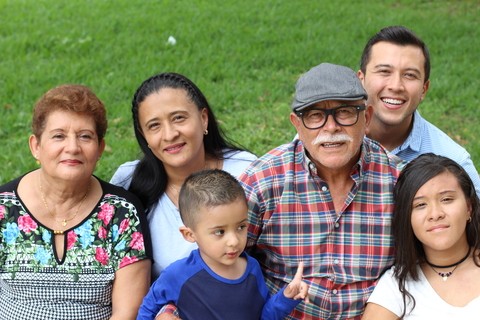Kolko & Casey, P.C. is a full service immigration and naturalization law firm providing professional legal services to individuals and businesses throughout Colorado, the Rocky Mountain West, the United States, and the World. Our professional staff speaks English, Spanish, Korean, and Portuguese and we can arrange for translators in any other language.
FAMILY REUNIFICATION PAROLE PROGRAM NOW AVAILABLE TO NATONALS OF COLOMBIA, EL SALVADOR, GUATEMALA, HONUDRAS, CUBA, AND HAITI
On July 7, 2023, the U.S. Department of Homeland Security (DHS) announced the implementation of a new Family Reunification Parole (FRP) process for nationals from Colombia, El Salvador, Guatemala, and Honduras who have approved I-130s filed by U.S. citizen or Lawful Permanent Resident (LPR) family members in the United States. These countries join Cuba and Haiti, who already have FRP processes in place since 2007, and 2014 respectively.
For the past several years, the FRP for Cubans and Haitians were put on hold and no invitations were issued for individuals to participate in FRP. However, on August 10, 2023, the DHS also announced that it will update and modernize the FRP for Cubans and Haitians.
These programs promote family unity for those individuals (and their eligible family members like spouse and minor children) who already have a family-based process available. Despite having an approved Form I-130, these individuals cannot be issued an immigrant visa because of the lack of visa availability per the Department of State’s Visa Bulletin, which is issued monthly. The Visa Bulletin informs the public about which petitions are being processed for visas, based on the “priority date.” The priority date often matches the date the petition was filed. The FRP allows for these individuals to reunite with their family in the United States while they wait for the “priority date” to be on or before the date their I-130 petition was filed. The individuals are given advance authorization to travel to the United States to seek parole into the United States.
Once paroled into the United States, individuals may be granted authorization to remain in the United States for a period of up to 3 years. They are also able to apply for Employment Authorization for the duration of their parole period.
Individuals may be able to apply for an additional period of authorized stay once the three-year period has expired if a visa is still not available to them. The granting of the travel authorization to the United States, parole into the United States, and extension of the parole period are discretionary decisions by the DHS based on national security, humanitarian reasons, and significant public benefit.
The FRP follows this general 7-step process:
1. DHS sends an invitation to petitioners who filed the approved I-130 inviting them to file a Form I-134A requesting consideration for the FRP process.
2. The Petitioner then files form I-134A online through the USCIS online account portal. A separate I-134A is required for each beneficiary, including each derivative beneficiary. The petitioner must also submit evidence establishing their income and assets and commit to providing financial support for the beneficiaries for the duration of their parole such that they do not become a public charge.
3. Once the DHS confirms the I-134A and verifies the petitioner’s background and financial information, the beneficiary receives an email from the DHS with instructions to create their own USCIS online account. Once the account is created, the beneficiary will confirm their biographic information and attest to meeting the eligibility requirements. These requirements include public health requirements and certain vaccination requirements.
4. After the DHS confirms the beneficiary’s biographic information, the beneficiary will then receive instructions for accessing the CBP One mobile application. The beneficiary again has to submit certain biographic and biometrics information through the CBP One mobile app.
5. Once the DHS finds that the beneficiary has established eligibility for the FRP process, passes the requisite background vetting, and warrants a favorable exercise of discretion, the beneficiary will receive an electronic advance authorization to travel to the United States. The individual must have a valid passport and pay for their own commercial flight to a United States airport
6. After receiving the electronic travel authorization, the beneficiary travels to the United States to seek parole into the United States. Parole into the United States is also granted by discretion at the interior Port of Entry. The beneficiary will need to submit additional biometrics, including a photograph and fingerprints, so that DHS may conduct additional vetting of the individual. This is to allow the trained officer to confirm the beneficiary does not pose a national security or public safety threa
7. If granted parole into the United States, the beneficiary is paroled into the United States. Parole is usually granted for a period up to 3 years. Once inside the United States, the individual may apply for employment authorization for the duration of the parole period.
Beneficiaries of the FRP process who have successfully been paroled into the United States must remember that parole can be terminated by the DHS, who will likely place them into removal proceedings or detain them if the parolee fails to maintain the conditions for the parole, commits certain crimes, or other derogatory information emerges during the parole period.
For more information on the parole program, or if you want our firm’s assistance with the parole process because you have received an invitation, please reach out to Kolko & Casey, P.C. at (303) 371-1822.
Related Posts
By accepting you will be accessing a service provided by a third-party external to https://www.kolkocasey.com/

 Call us today:
Call us today: 


